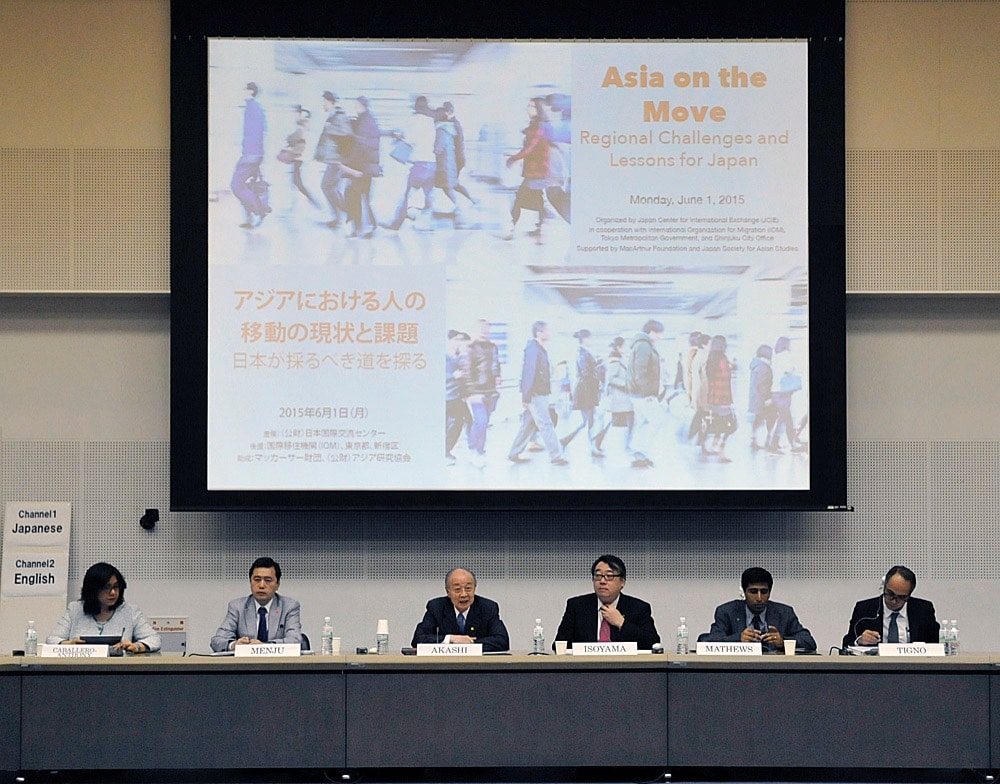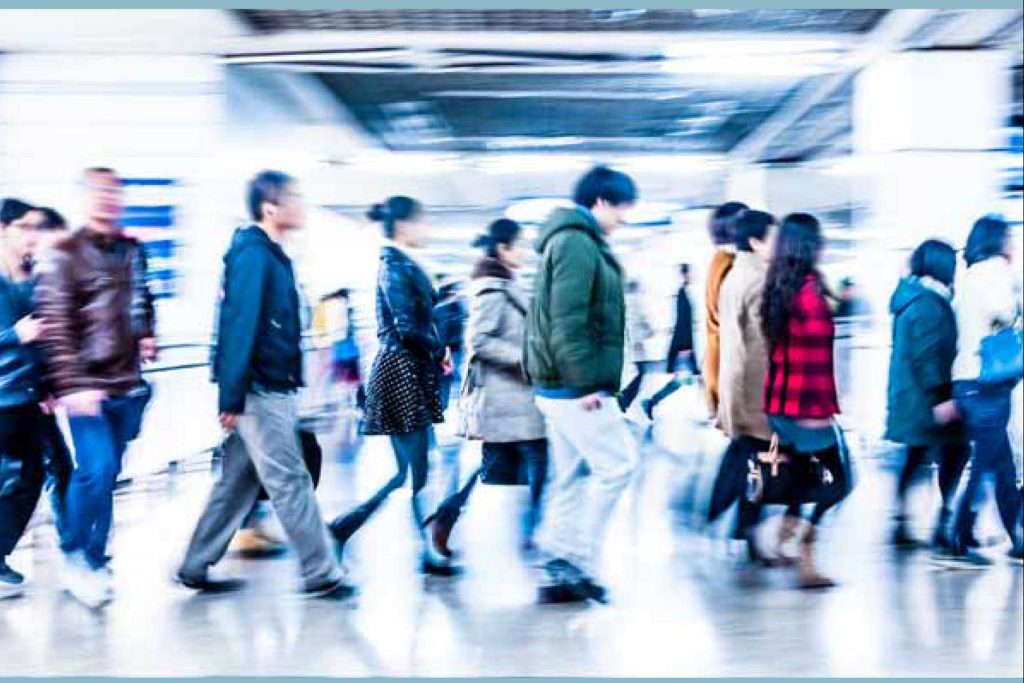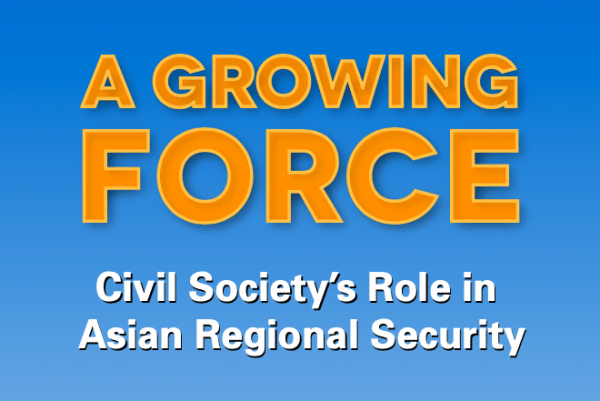STRENGTHENING NONGOVERNMENTAL CONTRIBUTIONS TO REGIONAL SECURITY COOPERATION
» Programs
2009–2015
In thinking about how to build security cooperation in Asia, experts have tended to focus almost exclusively on how states interact. However, evidence from around the world points to the fact that nongovernmental actors, particularly civil society organizations, are playing a growing role on security issues. This implies that they have important contributions to make in helping build regional cooperation and in complementing and strengthening like-minded governmental initiatives. JCIE conducted a study to explore how such nongovernmental initiatives can concretely contribute to regional security cooperation in East Asia.

STUDY TEAM 1: The Role of NGOs in Regional Security
From 2010 to 2014, a team of mid-career experts assessed what civil society organizations and networks are currently doing that contributes to regional security. The team carried out case studies in the fields of global health, disaster relief, human trafficking, piracy, and climate change to identify how civil society is contributing to efforts in regional cooperation in the fields of both traditional and nontraditional security.
STUDY TEAM 2: The Movement of People in East Asia and the Role of Civil Society
According to the UN’s International Migration Report 2013, migration within Asia grew by an average of 1.5 million migrants per year, with approximately 54 million people migrating from one Asian nation to another in 2013 for tourism, study, work, or marriage. While both economic and noneconomic activities motivate migration in Asia, there are numerous restrictions on immigration in each country and little binational or regional cooperation to date to address the relevant issues. Migrant workers, foreign spouses, and undocumented immigrants incur an enormous cost to overcome immigration restrictions, and are also excluded from various legal rights, placing them in a vulnerable position. As economic globalization and regional community building progress in East Asia, migration will continue to increase. The region’s nations must work together to address the challenges posed by international migration.
In 2014–2015, researchers from Japan, Korea, China, Singapore, Indonesia, Myanmar, the Philippines, and Vietnam analyzed migration in their respective countries and investigated what kind of regional cooperation and networks would serve to build a safe and orderly immigration system in East Asia. In addition to quantitative research, they conducted qualitative research on how civil society within each country is addressing these challenges.
HAN SUNG-JOO, Chairman, Asan Institute for Policy Studies
CHARLES MORRISON, President, East-West Center
JUSUF WANANDI, Vice Chairman, Board of Trustees, Centre for Strategic and International Studies, Jakarta
WANG JISI, Dean, School of International Studies, Peking University
JAMES GANNON, Executive Director, JCIE/USA
TOMOKO SUZUKI, Program Officer, JCIE
Conceptualization of Security | |
RIZAL SUKMA | Executive Director, Centre for Strategic and International Studies (CSIS), Jakarta [Team Director] |
GUI YONGTAO | Associate Professor, Peking University |
JAMES GANNON | Executive Director, JCIE/USA |
Global Health | |
YANZHONG HUANG | Associate Professor and Director of the Center for Global Health Studies, John C. Whitehead School of Diplomacy and International Relations, Seton Hall University |
Disaster Relief and Humanitarian Assistance | |
YUKIE OSA | Chairperson, Japan Platform; President, Association for Aid and Relief, Japan |
Human Trafficking | |
JUN HONNA | Associate Professor, Ritsumeikan University |
Piracy | |
J.N. MAK | Independent Analyst; former Director of Research, Maritime Institute of Malaysia |
Climate Change and Energy | |
CHUNG SUH-YONG | Associate Professor, Korea University |
MELY CABALLERO-ANTHONY | Associate Professor, Head of Centre for Non-Traditional Security Studies, S. Rajaratnam School of International Studies (RSIS), Nanyang Technological University (Singapore) [Team Director] |
TOSHIHIRO MENJU | Managing Director and Chief Program Officer, JCIE (Japan) [Team Director] |
AVIANTHI AZIS | Lecturer, Dept. of International Relations, University of Indonesia |
LE BACH DUONG | Co-Director, Institute for Social Development Studies |
TIAN FANGMENG | Professor, Beijing Normal University (China) |
ATSUKO GEIGER | Director of Operations, JCIE/USA |
LEE HYEJIN | Program Associate, JCIE, Researcher, Institute of Comparative Economic Studies, Hosei University |
MATHEWS MATHEW | Senior Research Fellow, Lee Kuan Yew School of Policy |
JORGE V. TIGNO | Associate Professor and Department Chair, Dept. of Political Science, University of Philippines |
MOE THUZAR | ISEAS Fellow and Lead Researcher, Socio-Cultural Affairs of the ASEAN Studies Centre |
PUBLICATIONS
Policy Briefs (Published by the East-West Center)
- Learning to Love NGOs: The Growing Role of Civil Society in Asian Security—James Gannon
- Rebalancing NGO Contributions to Public Health in Asia—Yanzhong Huang
- NGOs, Piracy and Maritime Crime in Southeast Asia—JN Mak
JCIE Report
This program was made possible through a generous grant from the John D. and Catherine T. MacArthur Foundation as part of their Asia Security Initiative.
Study Team 1 was carried out in cooperation with CSIS Jakarta.
Study Team 2 was carried out in cooperation with the S. Rajaratnam School of International Studies of Nanyang Technological University, Singapore.
EVENTS
Symposium | Asia on the Move—Regional Challenges & Lessons for Japan
On June 1, 2015, JCIE held a symposium in Tokyo to share the findings of a multinational case study project on The Movement of People in East Asia and the Role of Civil Society.
Symposium | Managing Movements of People for Security and Prosperity in East Asia: Roles of Civil Society
A multinational group of researchers met in Tokyo as part of a JCIE project on the Movement of People in East Asia and the Role of Civil Society, which was supported by the John D. and Catherine T. MacArthur Foundation.
Strengthening Nongovernmental Contributions to Regional Security Cooperation | Jakarta Roundtable
On August 4, 2010, the Japan Center for International Exchange (JCIE) and the Centre for Strategic and International Studies co-sponsored a roundtable in Jakarta as part of JCIE’s study of “Nongovernmental Contributions to Regional Security Cooperation.”
Strengthening Nongovernmental Contributions to Regional Security Cooperation | Tokyo Workshop
On January 18–19, 2010, the participants gathered in Tokyo for a workshop to discuss initial findings of a project examining (1) the roles of civil society in enhancing regional security cooperation, (2) common features of the roles of civil society beyond the issue areas, and (3) key factors for successes of civil society activities contributing to regional security cooperation.


